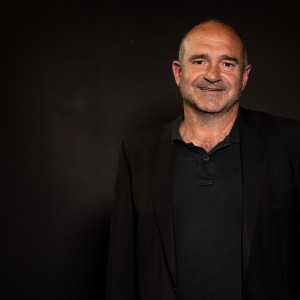We sat with Yvan Gastaut to discuss 2023 IMISCOE Spring Conference that will take place in University of Côte d’Azur (Nice) from the 15th until the 17th of March. Yvan is a Historian specializing in contemporary times, migration issues, sports and the Mediterranean - Lecturer at the University of Nice and amongst the coordinators of the hosting committee.

Could you tell us who are the organizations and people behind the Spring Conference?
In Nice, we are Multidisciplinary Laboratory (sociology, anthropology, political science, social psychology, history) and we work with the topic of Migrations in different places of the world, like in Africa, South America, Europe—the Mediterranean. The Migrations and Society Research Unit (URMIS) is composed by two teams, one in Paris and the other in Nice.
In Nice, among the organisers, we have PhD students, and we also have Alban Fournier as Project Support Officer, and I am here, as a historian (in contemporary history) and other two PhD students from Milan University who collaborate with us, and our Administrative Secretary, Valérie Saurent. So, it is a small team, but we are very present and putting a lot of effort in the organization of this event, we have many colleagues very interested and excited for the IMISCOE Spring Conference.
The theme of the conference is “Postcolonial migrations- heritages, specificities, mobilization,” What is the reasoning behind this theme?
I think there are different important reasons to reflect on the connections between the colonial times and the post-colonial situation.
The first is to reflect about the impact of colonization and how it affected the representation of migrants. The history of images and memory is essential to understanding the representation of migrants, and we must reflect on the significance of the past to comprehend how certain generations attempted to dominate others in the world.
The second, is linked with the importance of memory, to understand why slavery and colonization are relevant to younger generations, as they start to question why they happened in the past. We need to link these questioning with mobilizations against racism, domination, discrimination. I think it is interesting, to explore the mobilizations for the cases of George Floyd and, in France, for the case of Adama Traoré, and sadly, similar cases around the world. Especially, in the context of superdiverse societies which is why now we highlight the relevance of analysing these topics through the intersectional lenses. The third has to do with the positionality of the researcher in this subject and questions if the interest is a neutral one. This has come up in our Laboratory where many researchers are increasingly engaging in anti-racism movements.
Finally, we want to use the possibility of the conference format and IMISCOE being a global network to compare our research and perspectives through difference lenses, comparing different places, and its repercussions in the economic, social, and cultural repercussions.
We won’t try to give all these questions an answer, but we hope the discussion can be fruitful.
We also want to get to know you as migration scholars. First of all, about IMISCOE. How did you find out about IMISCOE? And how did you first get involved with IMISCOE?
We are very young members of IMISCOE, I believed we join about 3 years ago. I discovered IMISCOE in 2019 in the Summer conference in Malmö, in Sweden. I went there because my Laboratory was engaged in a Jean-Monnet project, with Pompeu Fabra University: the Euro-Mediterranean Research Network on Migration (EuroMedMig), with Ricard Zapata-Barrero, who also introduced me to the IMISCOE network.
Me and some colleagues went to Malmö to present our research and we decided to have some discussions about the membership also with our colleagues in Université de Paris. We were proposed to organise the Spring Conference and we are more than happy to welcome everyone in Nice that it’s a good city.
Do you have any tips for conference participants to enjoy their stay in Nice? Anything unmissable?
Nice is a very interesting city, because it is a small city of tourism in the Mediterranean. We have the seaside, beaches, and not very far from here, mountains. We have also the Riviera and have been recently, in 2021, recognised as part of the UNESCO World Heritage Sites. I think that every colleague from IMISCOE can find something they might like in the city.
For those who want to discover the touristic part of the Riviera, I recommend the promenade des Anglais, especially if you like jogging in the morning or the evening. There is the possibility to also have a small excursion to the Principauté de Monaco since it is not very far from here.
For those interested in the patrimony that different waves of migration have left in the city, I will organize a visit in the city on Friday to see these landmarks, especially for the narratives around migration. The first migration wave was the one of the élites and European aristocrats of the belle époque before the first world war who usually came to Nice in the winter. We also have some historical landmarks about the labour migration –less than Marseille—of Italians in the 20th century.
Finally, what do you hope people get out with out of those two days in Nice?
My first hope is that they take a reflection about the topics discussed in the conference and approaches to the topic of migrations and post-coloniality. Secondly, I hope this can also be a great event for our Laboratory and create the environment to facilitate collaborations, while enjoying together in a good working environment. Finally, we hope that every colleague and researcher comes back to their countries and institutions with a good image of Nice and of our team, so we can work together in the future, we are very much looking forward meeting you all!
